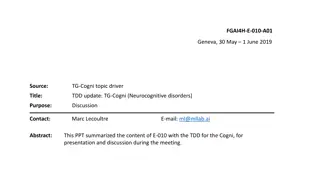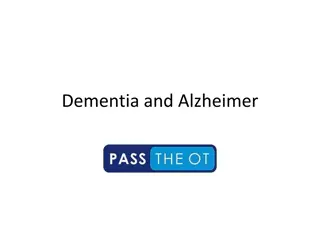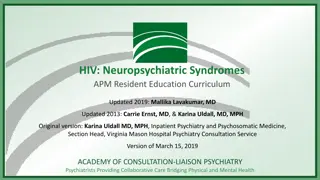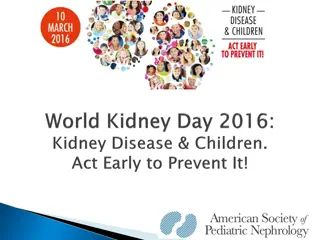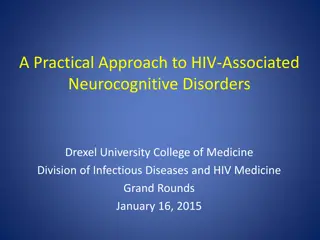Embracing Neurodiversity: Understanding, Supporting, and Empowering Individuals
Explore the concept of neurodiversity through insights from professionals working in the field. Gain a deeper understanding of the diverse experiences and challenges faced by neurodivergent individuals in various settings. Discover the importance of trauma-informed care, positive impacts, and the un
2 views • 22 slides
Advancements in AI for Neurocognitive Disorders: Proposal for Early Detection of Dementia
This presentation highlights the urgent need for early detection and classification of dementia, a global public health priority. It discusses utilizing machine learning-based diagnostics with real-world brain imaging and genetic data to address Alzheimer's disease and related neurocognitive disorde
3 views • 19 slides
Understanding Dementia and Alzheimer's Disease
Dementia and Alzheimer's disease are neurocognitive disorders that impact a person's memory, cognitive functions, and social abilities. Alzheimer's is the most common form of dementia and is characterized by the presence of plaques and tangles in the brain. Symptoms of dementia include cognitive cha
0 views • 22 slides
Understanding Neuropsychiatric Syndromes in HIV Patients
This educational curriculum explores the role of psychiatry in enhancing outcomes for people living with HIV (PLWH) by addressing cognitive burden, psychiatric disorders prevalence, and appropriate psychopharmacology. Delving into the history, epidemiology, and psychiatry's role, the material covers
0 views • 57 slides
Understanding Neurodiversity and Inclusive Language
This guidance, generated by members of the GM=EqAl Inclusive Language Subgroup, highlights the importance of using respectful and consistent language around neurodiversity, particularly autism. It emphasizes the use of identity-first language and explains key concepts related to neurodiversity and n
3 views • 11 slides
Understanding Pediatric Kidney Disease: Education, Detection, and Treatment
Kidney disease in children is a critical global concern, with early detection and healthy lifestyle being key to combating preventable kidney disorders. Initiatives like the CKiD study aim to improve understanding and treatment of chronic kidney disease in pediatric patients, emphasizing the importa
0 views • 15 slides
Understanding HIV-Associated Neurocognitive Disorders: A Practical Approach
HIV/AIDS presents complex medical and psychiatric challenges, including HIV-Associated Neurocognitive Disorders (HANDs), which impact patients, families, and caregivers. This presentation by Dr. Mary Ann Adler Cohen provides insights into the prevalence, impact, diagnosis, and treatment of HANDs, em
0 views • 56 slides

